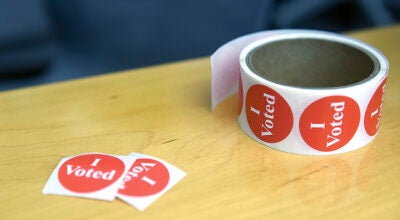Minnesota lawmakers begin work on renewable energy bill
Published 8:14 am Friday, January 29, 2021
|
Getting your Trinity Audio player ready...
|
MINNEAPOLIS (AP) — Minnesota lawmakers are beginning work on clean energy legislation that would require utilities to generate 100% of their electricity from carbon-free resources by 2040, as a renewed focus on climate change ramps up with a new administration in the White House.
The Minnesota bill, authored by Rep. Jamie Long, an environmental lawyer who chairs the House climate committee, would raise the requirement for the share of a utility’s retail electric sales generated by renewable energy sources to 40% by 2025 and 55% by 2035. Under the bill, 100% of electricity generated by utilities must be carbon-free by 2040. The Minnesota Public Utilities Commission would be required to evaluate the environmental impacts should a utility request a delay.
Long said at a hearing Thursday that the bill would help combat public health problems caused by climate change — which the Minneapolis Democrat said are disproportionately felt by poorer communities — while creating jobs in clean energy. Minnesota is not on track to meet its current goal of reducing carbon emissions by 80% by 2050 and has actually increased emissions over the last two years, which highlights the bill’s urgency, he said.
“My home in Minneapolis sees warmer winters, more extreme cold and less snow than we’ve ever known, and my family of farmers in the Midwest experience more flooding and erratic weather, which hurts their ability to support themselves and their families,” Halley Norman of the environmental group TakeAction Minnesota testified. “Our futures are under threat now and will continue to be if we don’t take action.”
While some larger utilities in the state like Xcel Energy already have committed to eliminating carbon emissions by 2050, critics of the bill argue the requirements would outpace technology available to smaller utilities that serve rural Minnesota, and that the cost of implementation would hurt consumers in those areas.
Republican lawmakers proposed several amendments to lessen the bill’s impact. One would have allowed anyone — not just utilities — to ask the PUC to modify or delay implementation of the standards. Another would classify incineration plants that capture at least 80% of their carbon emissions as “carbon-free.” Both amendments failed, as well as another to lift the state’s moratorium on the construction of new nuclear power plants.
Further discussion on the bill is expected. The committee ran out of time and adjourned before it could consider several other amendments. Prospects for the proposal are dim in the Republican-controlled Senate.
Nationally, President Joe Biden this week signed several executive orders aimed at limiting global warming caused by burning fossil fuels, including a measure similar to the Minnesota bill that seeks to eliminate pollution from fossil fuel in the power sector by 2035 and the U.S. economy overall by 2050.
In another effort to reduce greenhouse gas emissions, Democratic Gov. Tim Walz and the Minnesota Pollution Control Agency have proposed requiring automakers to provide the state with more zero-emissions electric vehicles. The proposed rule has seen pushback from car dealers and
Senate Republicans, who have made blocking that initiative a priority this session.





